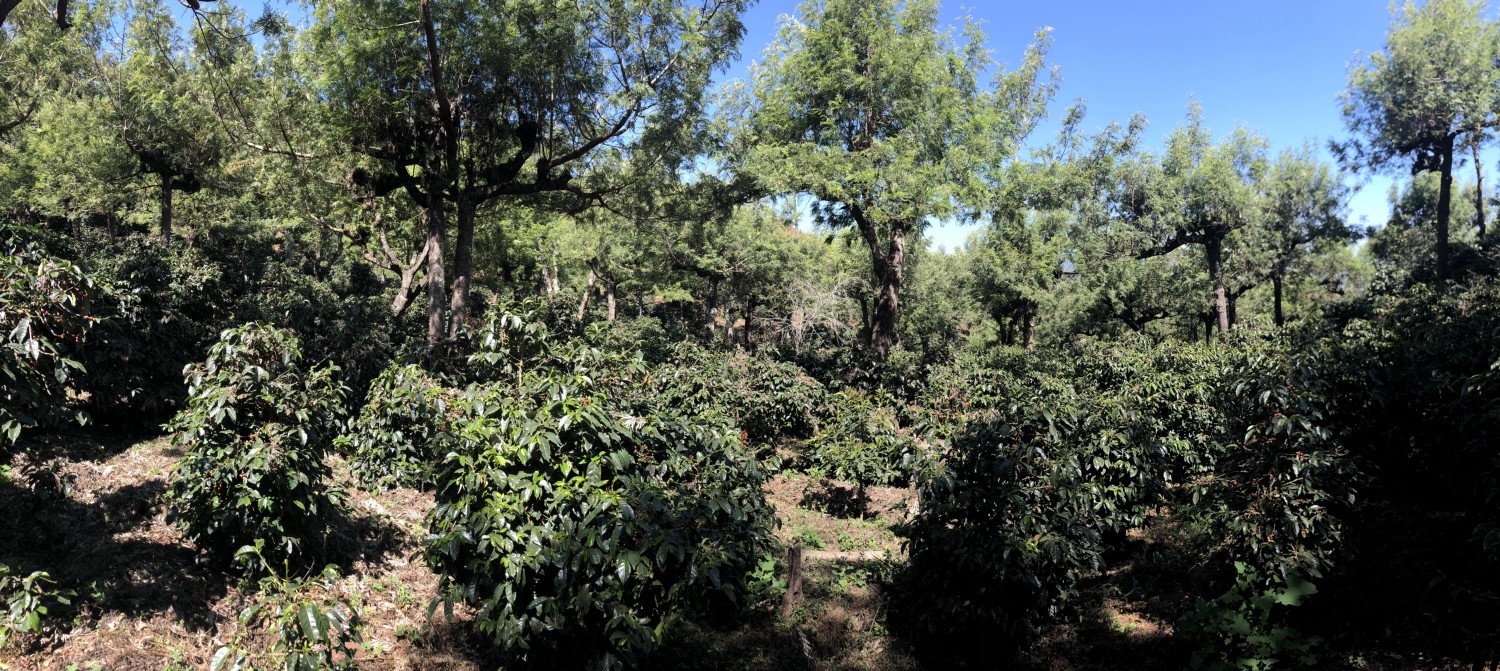Field Notes: Finca Catalan De Las Mercedes
Producer: Nicholas Hammond
Region: San Martin Jilotepeque, Chimaltenango, Guatemala
Altitude: 1700–2100masl
Varietals: Bourbon, Pacamara, Geisha, Maragogipe
Process: Washed, fermented for 12–16 hours, dried on raised beds for 10–15 days
MARCH 2018
Returning to Catalan De Las Mercedes this year, I was most struck by the expansive efforts of Nico Hammond over the last year. The farm’s robust, four year-old wet mill dominates the bottom of a slope facing the farmhouse. Above it, farther up the hill, you catch a glimpse of the top of the farm, which largely faces west. Only 32 hectares of 300 hectares are planted at the moment, and with over 80,000 young trees nearly ready to plant, Nico’s plans for the future are easy to grasp. The farm traditionally grows Red & Yellow Bourbons, but in the nursery you’ll find Pacamara, Maragogipe, and Geisha as well, which reflect evolving tastes and wisely cautious planning. All three are roya resistant, with Pacamara and Geisha known for exciting profiles and high cupping scores.
A small section of the expansive nursery
The number of raised beds has doubled since last year, and right now the wet mill processes up to 2,000 lbs of coffee per day. Catalan will buy deliveries of ripe coffee cherries from local producers around Chimaltenango, where there is a wide range of elevations, so coffee is harvested (and processed) regularly from Oct-March, though Catalan itself is mostly picked in February and March.
Why is this relevant? Two Reasons.
Catalan’s wet mill has become a center for a community around the town of San Martin Jilotepeque, paying around 400 small farmers better prices than Coyotes and doing a fantastic job processing the coffee, separating lots by farm or quality as the situation dictates.
The introduction of this mill to the region has not only been a buoy to the local economy, it’s allowing coffee from Chimaltenango to achieve more prominence in a global marketplace where “Chima” coffees were often labeled “Antigua,” and these kinds of specifics are especially nice when tasting for terroir.
Interestingly, the harvest was several weeks later this year than last year, due largely to a very cold December. In fact, Nico recalled how a frost (unheard of there) had him fearing for the lives of his many coffee seedlings, not to mention the viability of his entire farm this harvest. Climate change is the obvious threat here, looming over the future so carefully laid out in the little black cylinders that line the nursery floor.
Geisha seedlings
Yet another regrettable outcome of the harsh rainy season is that we were unable to taste most of what will be harvested here this year, though we should have some samples in soon. The four early lots that we did taste were extremely promising and consistent with last year. We expect this harvest to arrive in May or June, and intend on offering a mix of varietals an processes for you to taste! We’d also like to thank Ally Coffee for establishing this relationship and helping us to work more closely with Nico at Catalan.
— Mark Boccard, Owner at Southdown Coffee
Red Bourbon growing in shade at 1900 masl. We served coffee from these trees in 2017
The wet-mill, with early morning operations underway after drop-offs overnight
Vincente, sorting for density in channels
The legendary Augustine Elias carrying bags of processed coffee, weighing in at 150 lbs each
Mill Manager Carlos Martinez and two friendly coffee dogs
Raking parchment coffee to dry on the largest of two patios at Finca Catalan.
Kaqchiquel workers preparing to shuttle compost down the hill to newly dug holes. Each hole gets one basketful of compost and a baby coffee tree. The compost is made entirely off discarded coffee cherry pulp and skin, which is brought to the top of the farm in truckloads for dispersal.











